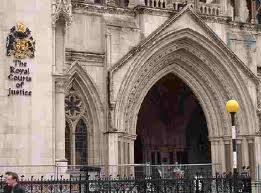We have commented in an earlier news page (“Ratepayer allowed to appeal against refusal to reinstate”) about the case of a ratepayer whose appeal was struck out by the Valuation Tribunal for England (VTE) because of a failure to comply with a direction of the VTE. This case has now reached its final conclusion with the decision of the Upper Tribunal (Lands Chamber) in Wonder Investments Limited v Jackson (VO) (2015) UKUT 0649 (LC).
The ratepayer had made a proposal to alter the rating list, but this was not agreed with the Valuation Officer and was referred to the VTE as an appeal. The VTE listed the matter for a hearing and issued directions requiring the appellant ratepayer to file a statement of case at least six weeks before the hearing date. When the VTE did not receive a statement of case it issued a notice striking out the ratepayer’s appeal. The ratepayer requested the VTE to reinstate the appeal, but the VTE refused to do so. The ratepayer then appealed to the Upper Tribunal (Lands Chamber) against the VTE’s refusal to reinstate the appeal. The Upper Tribunal (Lands Chamber) issued a decision regarding its jurisdiction to hear an appeal against a refusal to reinstate and determined that it did, indeed, have jurisdiction to hear such an appeal. That decision was the subject of our earlier news page item.
Having decided that it did have jurisdiction to hear such an appeal, the Upper Tribunal (Lands Chamber) then invited the parties to make submissions about the substantive issue of whether the appeal should be reinstated, and about how the Upper Tribunal should approach the matter. The ratepayer’s submissions failed to address either of these matters. The Valuation Officer’s submissions were that the appeal should be dealt with as a rehearing of the original refusal to reinstate, but that the burden was on the ratepayer to show reasons why the appeal should be reinstated.
The Upper Tribunal was clearly cautious of the Valuation Officer’s suggestion of a rehearing, because the case concerned the exercise of case management powers, and doubted that a rehearing was the correct approach, but decided that “despite those misgivings” the matter should proceed as a rehearing. However, as the ratepayer provided no new evidence to show, either, that it had complied with the VTE’s direction, or, that there was reason to excuse non-compliance, the Upper Tribunal concluded that there were no grounds to justify reinstating the appeal.
This decision shows that ratepayers who have had appeals struck out by the VTE for non-compliance will need to show evidence to convince the Upper Tribunal to reinstate those appeals. The Upper Tribunal is clearly reluctant generally to interfere with the VTE’s case management powers. This is part of the morass of procedural matters that are presently dogging the rating appeals system. Sadly, the proposed reforms to the appeals system, which we have commented on recently in these pages, seem unlikely to cure the problems.
Whilst the saying is that “wonders never cease”, it is clear that Wonder’s appeal has now ceased.

